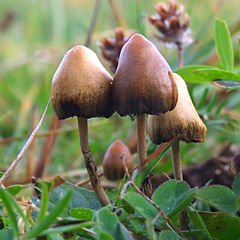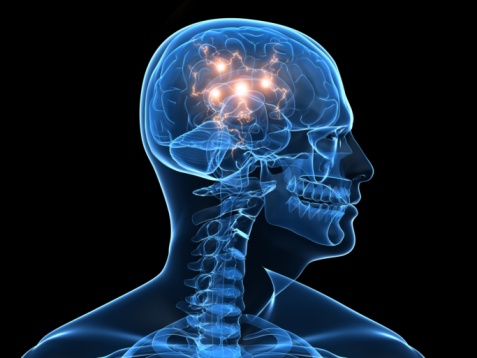Perception of Time: How does our feeling for time emerge - Final Part 5

After a biological clock, which controls our time experience in a second or minute range, brain researchers have been searching for a long time. New insights show, that our physical feeling plays a central role: Self-Perception and time experience are inseparably connected to each other.
This is the fifth and last part of this article series. If you have missed some parts, don't forget to catch up on it:
- Perception of Time: How does our feeling for time emerge - Part 1
- Perception of Time: How does our feeling for time emerge - Part 2
- Perception of Time: How does our feeling for time emerge - Part 3
- Perception of Time: How does our feeling for time emerge - Part 4
How does our feeling for time emerge - Part 5
Hallucinogens let time and the self disappear
In the extreme case of extraordinary states of consciousness, the self as well as perception of time can completely vanish, f.e. after long time mediation experience or under the influence of specific drugs, the so called hallucinogens. Franz X. Vollenweider and his colleagues at the Psychiatric University of Zürich (Switzerland) have researched such borderline experiences with the help of Psilocybe. Under influence of the substance, besides experience of time getting strongly distorted, massive changes regarding self experience can take place. It could be proven, that this goes along with measurable impairments of time estimate. Under the influence of the drug, subjects tended to a slower spontaneous knock frequency and couldn't correctly reproduce given intervals of more than 2 1/2 seconds.
This lab results comply to reports of extraordinary experiences with meditation after long time practice, with rarely emerging mystical experiences, occasionally also while transitioning between being awake and sleeping, in hypnosis, by rhythm and music created trance, as well as so called near death experiences. In this states of changed consciousness it happens, that experienced time starts to pass slower and slower, til to a subjectively felt temporal standstill, and to which a strongly changed body and space feeling is connected, that culminates in the decomposition of self-notion.
Insights through epileptic seizures
Neurologists are especially interested on patients with tightly bounded epileptic "ecstatic" seizures, which provably are having effect on the insular lobe. The way Fjodor Dostojewskij writes in his Roman "The idiot", aware experience gets stronger while ecstatic:
This moments were nothing else than an extraordinary intensifying of consciousness, if you like to describe this state very shortly.
In the year of 2009 Fabienne Picard of the University Clinic Genf studied such patients. According to his results, while having an attack, self and body presence are more intense, spreading out ecstatic sense of pleasure with spiritual appeal. Moreover, time experience gets confused. The subjects report about déjà vus and hard to describe anomalies regarding feeling of time and space, finally entering unconsciousness. Such an ecstatic-epileptic episode comes along with uncommonly strong activity of the front part of the insular lobe. At first, the latter evokes a more intensive self and body consciousness. After a specific degree of neuronal activation, perception of self and time finally breaks.
According to all present insights the riddles of subjective time is strongly connected with the big riddle of consciousness. Also those animals, that provably have self-consciousness, are showing at least a rudimentary consciousness of time. Apes and crows f.e. as well as whales, dolphins and elephants can be proven to have self-consciousness with the mirror test. Thereby, animals recognize a spot on a, otherwise not visible, part of their body and try to remove it: This indicates, that they are able to realize themselves as well as changes in their self-image (the spot). This animals do also have time consciousness.
For example they can learn to wait for superior food, if they get offered with some less attractive. This ability to wait, scientists could prove on apes and crows. Besides animals like the mentioned ones having a present self awareness - like the mirror test shows - they also have future self awareness in which they are able to project themselves. They therefore own consciousness of self and time.
From subjective time experience in everyday life, a big bend leads to the question of self awareness and description of extraordinary states of consciousness. The exploration of time experience turns out to be science of body-self and consciousness. Towards this theoretical base, future science could be oriented.



@n3bul4 got you a $1.77 @minnowbooster upgoat, nice! (Image: pixabay.com)
Want a boost? Click here to read more!
This post has received a 2.57 % upvote from @booster thanks to: @n3bul4.